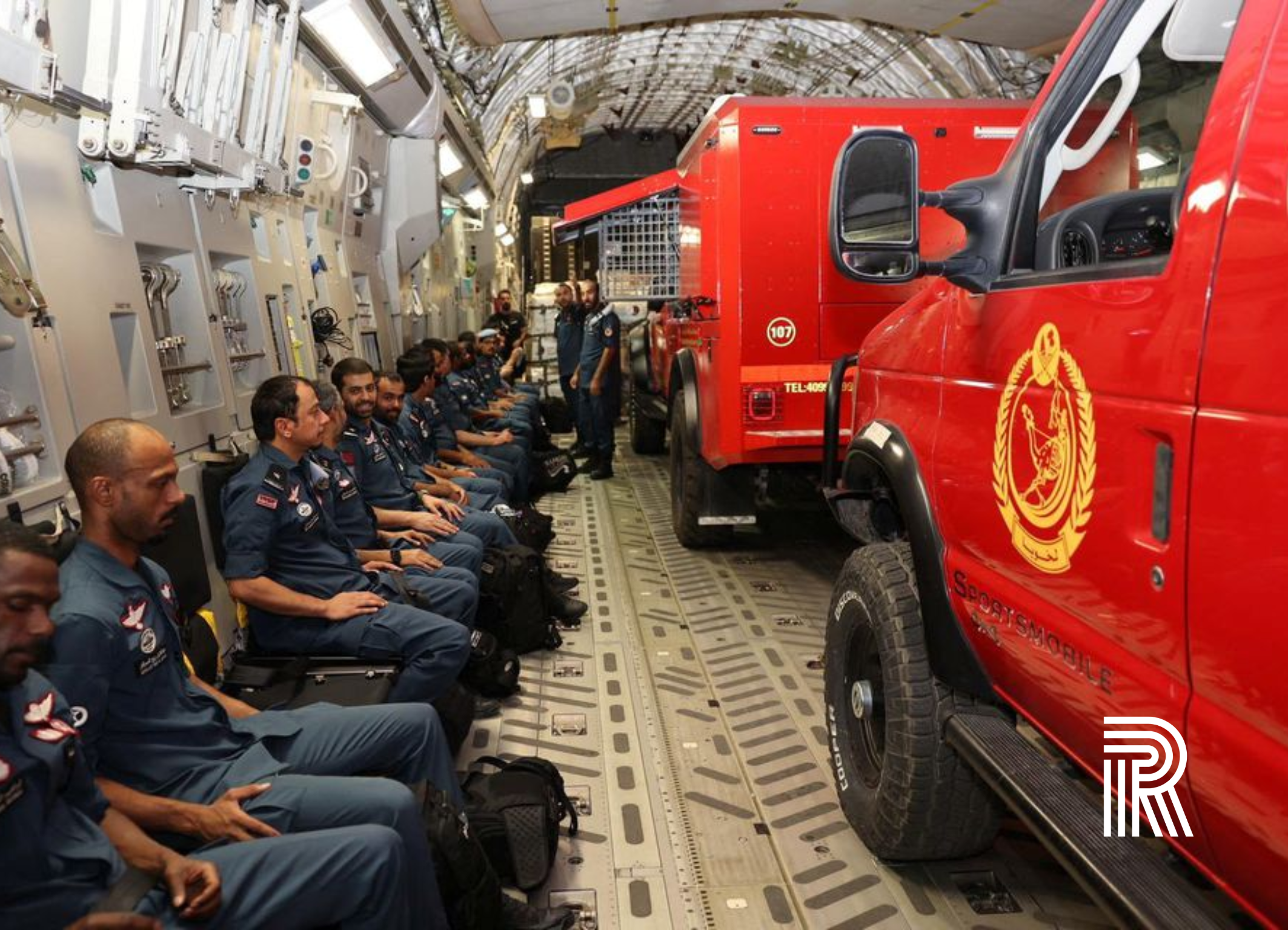
Pride, need and reputation - Why countries might not accept international aid
Following the devastating Earthquake which has so far killed over 2,800 people in Morocco, Government authorities are leading a national rescue and response mechanism, and civil protection units have been deployed to increase stocks in blood banks and ensure the supply of vital resources to affected areas.
Saving lives is paramount and should underpin all decision-making in the context of emergency management by the Moroccan Government.
However, there is growing concern about the lack of updates from the government and how they are communicating about the scale and impact of the destruction. Without this, it is unclear just how much support is required, how prepared the country is for such an event, and how capable they are of delivering a sufficient response.
According to the New York Times on Monday 11th September (three days after the quake), rescuers were still struggling to reach remote areas worst impacted. Some residents in Douar Tnirt reported that they had received almost no official relief and that the lack of ambulances and transportation resulted in people being pulled from the rubble, only to pass away before they could be taken to Marrakesh for treatment.
Building on this growing concern, many wondered why international aid and support were not formally requested. Morocco has so far accepted help from just four countries (the UK, Spain, Qatar, and the United Arab Emirates) prompting discord from others, like France, where tensions exist between the nations. France’s foreign minister has said that it is up to Morocco whether it seeks aid, and that France is “ready to help if asked”.
The ultimate decision to request or accept international aid in an emergency situation is complex and can vary significantly from one country to another. While every country has a right to protect its own population, poor decision-making and a lack of an appropriate response could cause legacy issues, reputational damage, and compound disaster further.

Increasingly, reputation is a lens through which success can be measured in the aftermath of an emergency or disaster, much like a corporate crisis.
However, if lives are lost due to a failure in preparedness, or a failure to request international aid, then local leaders' reputations can be rapidly ruined.
Immediate Response: In any emergency, the immediate response represents a critical opportunity to reduce or eliminate the impact of disaster. This is true for any emergency or corporate crisis. Managing reputation is certainly secondary to the preservation of human life, but inevitably they will go hand-in-hand when critical assessment can highlight effective, or ineffective responses and impact on human life. The immediate response represents an opportunity to show capability and preparedness, and the potential to enhance the reputation of those in charge.
Emergency VS Disaster: Definitions are important in Emergency Management. An emergency, for example, might be considered as either an event involving “routine, standardised operating procedures as a response to perceived events, (Lindell et al., 2006) OR ‘an imminent future event which has the potential to impact human life on a large scale’. The same author (Lindell), reserves the term ‘disaster’ for events that produce more losses than a community can manage (Lindell et al., 2006) while Coppola (2020) highlights that “only events which overwhelm the [local] response capacity as being identifiable as a ‘disaster.’ These definitions are important in the context of being able to understand and comprehend the scale of the issue, and to inform the response needed. The same can be said for any crisis or issue experienced, by a business.
Capacity and Resources: When faced with an emergency, the lack of planning, capacity, and resources to respond is a surefire way to dismantle a reputation and encourage blame. The same can be said for any corporate entity. The Moroccan government currently feels that it has sufficient resources to deliver an effective response, with limited international input. This again will be critically assessed over time, and the decision to not ask for assistance may be regrettable, as many still fight for their lives.
Pitfalls of International Aid: Often, international aid can be well-intentioned but poorly executed. Different customs, cultures, politics, religions, diets, etc can be overlooked when aid is delivered. Examples might include survivor camps being established on sites of historical significance, or else local burial customs and traditions ignored. Lucy Easthope in her book ‘When the Dust Settles’, highlights how ‘Zaka’ teams in Israel collect all body fragments, ensuring none of the person is left behind, after a disaster, bombing or shooting. Underpinning all of this is the need to perform actions informed through local support and engagement. Simple stakeholder engagement exercises and community listening can support avoiding these pitfalls alongside a compassionate and humanitarian approach. The same can be said for businesses in decision-making, and considering the mental health and wellbeing of employees, or those impacted by a crisis.
Sovereignty and National Pride: Some countries simply have their own national agenda and will prioritise their sovereignty. This might further be a demonstration of their independence, self-reliance or national pride and reputation. Pride can often get in the way, however, when trying to maintain or repair reputations.
Political Considerations: The decision to request international aid can have political implications and concern may exist about the domestic perception of asking for help. India, in 2011 decided to reject British aid, because of the negative publicity of Indian poverty promoted by the UK Department for International Development.
Emergency Learning: A harsh reality exists that countries can learn from managing their own disasters. Learning is essential and can help build capability for future emergencies and resilience among the population. This is especially true in more disaster-prone regions, like Morocco which is among the countries most exposed to geological and climate-related hazards in the Middle East and North Africa (MENA). The World Bank estimates that disasters such as flooding, earthquakes, and drought currently cost Morocco over US$575 million each year. Poverty and socio-economic vulnerability are very much compounded by disasters. If a country has to spend millions on recovery, it inevitably reduces its ability to spend on social improvements and improving infrastructure.
Importance of Financial Aid: Financial aid is often considered one of the most critical forms of assistance in response to emergencies and disasters for several reasons. It can provide immediate relief to affected individuals and communities and the purchase of essential goods while also Injecting money into the local economy and stimulating economic recovery.
Ultimately, Morocco is in charge of protecting and controlling its own population and reputation. Saviour narratives have commonly been associated with Western countries and their approach to aid. Support should be delivered at the request of the country facing the disaster, but clearly, reputational risk exists both if they do request aid and if they don’t. Reputation is a lens through which long-term success and failure can ultimately be measured, but more short-term, lives are at stake, and many Moroccan people impacted will be happy to accept any kind of help and support available.
Niall McHugh is a Senior Account Manager at the Reputation Inc Dublin Office and is undertaking a Masters Degreee in Emergency Management with Dublin City University, to complement his BA in Public Relations and Communications.
Image Credit: Qatari International Search and Rescue Group personnel and aid are seen onboard a military cargo plane destined to Morocco to provide support on the ground, following an earthquake that struck the country, at Al Udeid Air Base, near Doha, Qatar, September 10, 2023. Lekhwiya



